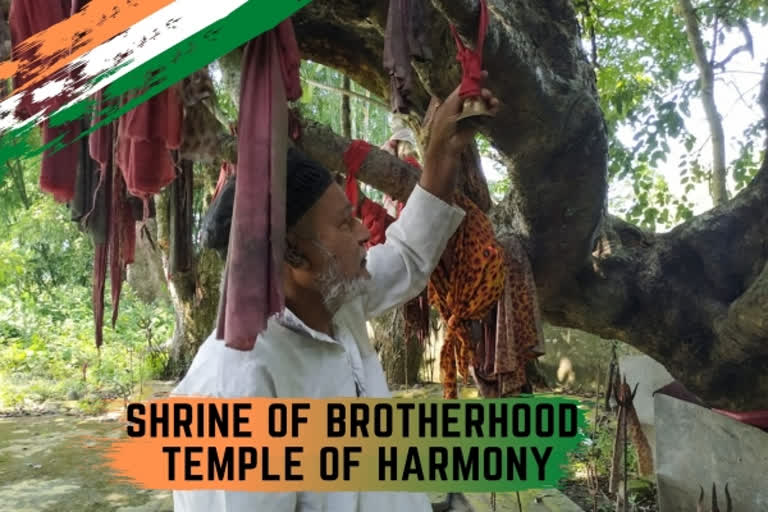Guwahati:The time is5 am and even as the members of his family are still in their slumber, Motibar Rahman is awake and has just completed his Namaz after taking bath. After the Namaz, Rahman slowly walks towards the backyard of his house to clean the ancient Burha Gosair Than, a sacred place where Lord Shiva is worshipped.
Although it sounds weird, the family of Rahmans has been the keepers of this sacred religious place of the Hindu God, Lord Shiva for over five centuries now. Like his forefathers, Motibar sweeps the shrine every morning and lights up some candles for Lord Shiva, who the locals believe, lives there.
“I have been doing this for the last several years—since I was very young. Before me, my father used to do this work and his father before him. Our family has been the keepers of this holy place since over last 500 years,” said 73-year old Motibar Rahman, a resident of Rangmahal in North Guwahati, located about 45 km away from Assam’s capital Dispur.
“The first man in our family was Borhansa. Lord Shiva came to Borhansa and told him that he wanted to live in this place. From now on it will be the responsibility of the family to keep this place. Lord said I shall accept service from your family only and no one else. Since then the service of Lord Shiva became a part of our family and we are doing it for generations,” said Motibar, who also calls Lord Shiva as Bhanguri Nana (‘Bhanguri’ is one addicted to cannabis as Lord Shiva is often connected to it and ‘Nana’ means grandfather).
Also read:JNU warns students' body against providing shelter to Delhi violence victims on campus
“We follow Islam and I try to offer all the five Namaz. Likewise, I also come here every day to clean this place and light the candles and incense sticks. There is no temple here but for years people are coming here seeking the blessings of Bhanguri Nana. He listens to everyone and fulfils everyone’s wish,” Rahman said.
